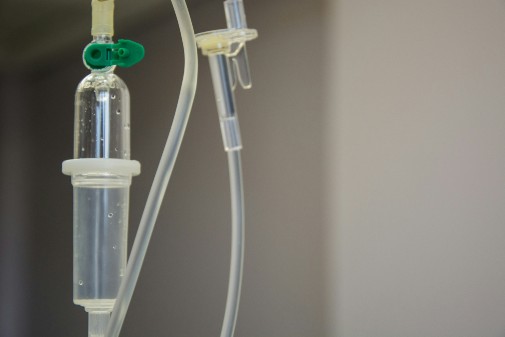People from Gypsy, Traveller and Roma (GTR) communities across Yorkshire will join forces with cancer experts to confront deep-rooted health inequalities caused by "a long history of neglect".
 The research team will work closely with GTR partners across Yorkshire including York Travellers Trust, Leeds GATE and Care for Young People's Future
The research team will work closely with GTR partners across Yorkshire including York Travellers Trust, Leeds GATE and Care for Young People's Future
As part of a study funded by Yorkshire Cancer Research and led by researchers in the Department of Sociology at the University of York, people from GTR communities are being invited to share their experiences of cancer and help develop new ways to prevent cancer, improve early diagnosis and increase participation in screening programmes.
People from GTR communities are more likely to experience delays in cancer diagnosis and less likely to take part in cancer screening. They are also disproportionately impacted by cancer risk factors such as smoking, alcohol, poor nutrition and environmental pollutants.
One of the goals of the study is to help healthcare professionals better understand the everyday struggles and disadvantages faced by people from GTR communities when trying to access healthcare. The main aim is to improve how doctors and nurses communicate and build trust with these communities, so that people can get diagnosed earlier, receive better care and are more likely to survive cancer.
Cancer taboo
Dr Sangeeta Chattoo, Senior Research Fellow at the University of York said: "This study will address long-standing health inequalities, institutional racism and marginalisation experienced by GTR communities living in Yorkshire.
"A long history of neglect has reinforced a taboo on cancer within these communities. Poor understanding of risk factors and symptoms of cancer, coupled with limited access to culturally appropriate screening services, results in delays in diagnosis, leaving healthcare agencies ill-equipped to respond."
Two toolkits - one for healthcare professionals and one for community members - will be developed to support better communication, more informed choices, and easier access to culturally appropriate services. These will be rolled out through community outreach events and evaluated to measure impact.
Data issues
Karl Atkin, Professor of Sociology at the University of York, said: "Socio-economic deprivation, higher incidence of chronic health conditions and invisibility of racism experienced as a white minority have eroded trust in healthcare services.
"Poor ethnic monitoring, and reluctance to disclose ethnicity for fear of discrimination by service providers, has resulted in a lack of robust data on cancer, exacerbating inequalities for these groups."
The research team will work closely with GTR partners across Yorkshire including York Travellers Trust, Leeds GATE and Care for Young People's Future to establish culturally appropriate and timely access to healthcare.
Building trust
Violet Cannon, Chief Executive at York Travellers Trust, said: "In many communities, the word cancer is spoken only in whispers. Sadly, for Gypsy and Traveller people, it is often not spoken at all. Too often it is seen not as an illness that can be treated, but as a death sentence.
"By bridging the gap between communities and professionals, this project aims to ensure that Gypsy and Traveller people are heard, respected, and treated with the same urgency as anyone else. Only then will the word cancer begin to lose its power as a death sentence – and instead become a word linked to survival, hope, and life."
Dr Stuart Griffiths, Director of Research, Policy and Impact at Yorkshire Cancer Research, said: "Everyone deserves the chance to live a life free from cancer. This work puts people at the heart of the solution by listening to communities, understanding their needs and building trust. Yorkshire Cancer Research is dedicated to reducing inequalities and improving cancer survival for all communities across Yorkshire, so more people can live longer, healthier lives."











